One spud, two spuds, picking potatoes on a Northern Maine Aroostook County farm.
Was it hard for kids to head out into the early morning darkness to the Maine potato farm field? What work ethic lessons were learned for youth relied on to get the potatoes basket picked, poured into barrels, trucked from the Maine farm field for winter storage?
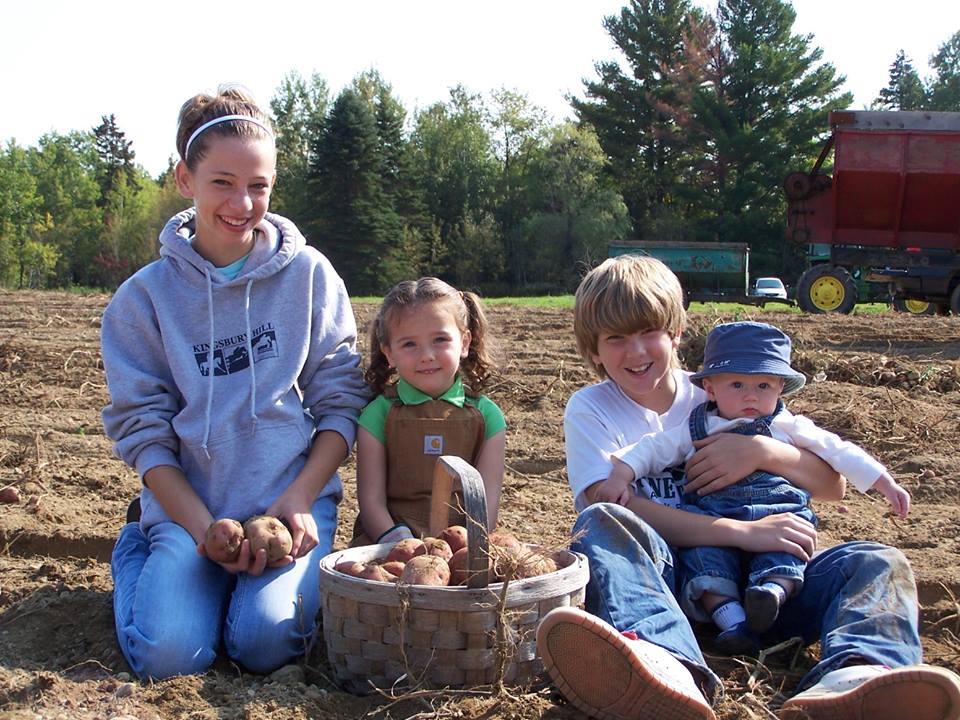
Have you ever picked potatoes along with your family and friends to earn money for school clothing?
The valuable list of skills and attitudes learned picking Northern Maine potatoes.
Toiling in the farm field under all kinds of weather over school harvest recess is a worthwhile entry level job. But from the outside looking in, today’s youth and parents not exposed to the fall harvest potato picking tradition, it is easy to overlook the learning experience.
So what was it like and why were area Maine youth relied on as an vital component for the fall harvest of potatoes?
My Dad and mom, northern Maine potato farmers said kids did a better job handling the potato harvest picking the crop. Less damage to the valuable farm field potato harvest crop than from fast moving mechanized machinery like harvesters caused. Better for Mother Nature too with less erosion from air harvesters harnessing kid power to pick this year’s crop.
Your family household goes to bed the night before to prepare for the early rise and shine during potato harvest.
By 5AM, you are finishing a hearty breakfast for the day ahead in the Maine potato farm field.

The fresh air during fall potato harvest improves the taste of your lunch, all the the snacks. What you munched on carefully packed to lug to the field.
Along with your water jug, extra warm clothes, back up pairs of fresh brown jersey work gloves.
You learned early to be careful with your lunch box, extra clothes, water jug to keep them from being run over by the barrel truck.
The Maine area potato farmer that hired you for the fall harvest will be at your address with a covered pickup soon.
Barely sunrise, rounding up and delivering the young potato pickers to the new field to dig today. Or to finish up the one from yesterday that was not completed due to sheer size, too much rain, frost or or mechanical breakdowns. You arrive in the field layered with long underwear, extra clothing layers because you can see your breath in the crisp, frosty early morning air.
One by one you hop out of the back of a pickup or van used to collect your fellow potato pickers for this year’s harvest.
Before heading to your “section” in the row after row of un-earthed, not dug potato field, your field boss hands you a fresh pack of tickets. You have an assigned number, usually 50 up to 100 tickets wrapped in an elastic band. A barrel of potatoes weighs 165 pounds.
Yesterday’s barrel tickets tallied the night before. How many barrels did you pick? Count the tickets you get back or the ones missing from your original stack.
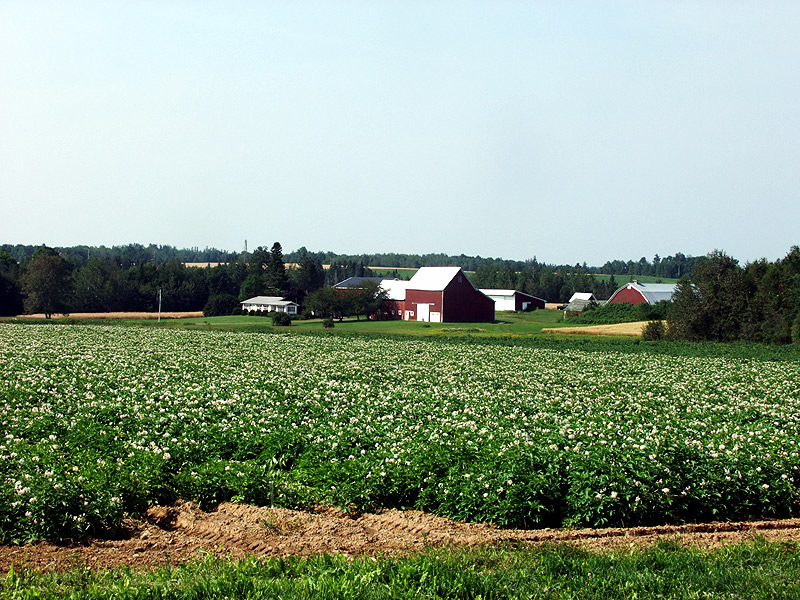
It takes at least four filled to the brim and over baskets of fresh dug potatoes to fill a barrel. And to earn the right to slide one of your numbered tickets out of the pack to wedge into the groove, on the top of the barrel stave.
That ticket with your number announces to the World that you claim this full barrel for 25, 60 cents or whatever the farmer is paying you this season.
Piece work not an hourly wage. If you don’t produce, you don’t make much or anything.
Clear a spot. You put the new empty barrel on it’s side, carefully using two hands to fill it with potatoes. The ones exposed by the squeaking potato digger that back and forth passes your section over and over through out the day of outdoor labor. As you and your fellow potato pickers advance across the wide open farm field one harvested row at a time.
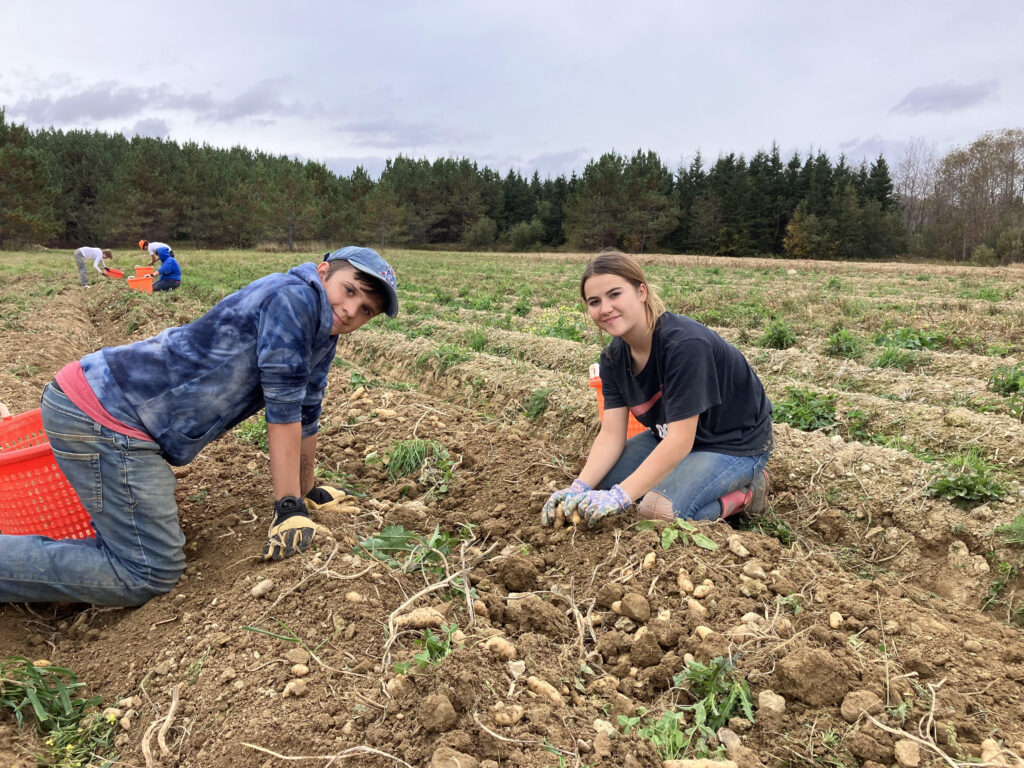
Your section is how long a portion of the farm field you think you can manage through out the day or until you move to a new one.
The trick to be just getting the last potato picked up and deposited in your basket before moving into the next row. Hopefully the one that was just freshly dug that only good timing and planning causes. Pick a schedule that matches the digger speed to keep caught up. Work steady.
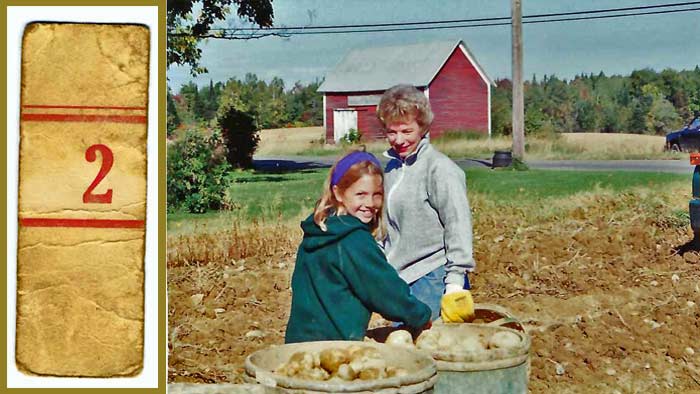
But like life, things happen and you can find yourself getting behind in the Maine potato field.
One of the many observations taught early in the Maine potato field. To learn something that sticks with you for life.
If you took too big a potato field section, you will run out of steam and get behind.
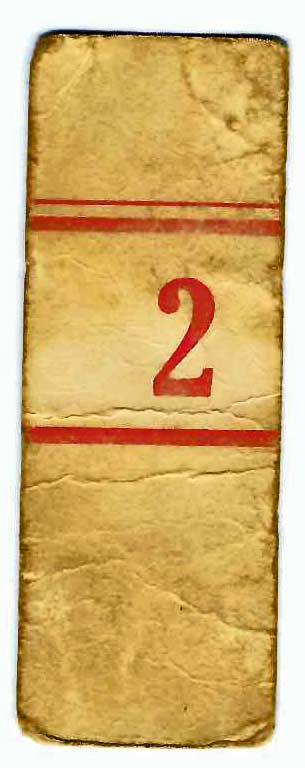
Some potato fields are grassier than others and have sods to wrestle with to make sure you “pick them clean”.
In the Maine potato field, it is no quality spud left behind. And remember that “bruisers are losers”.
Be careful handling the potatoes.
Slowly dump the basket into the empty farm field barrels. Before placing the next empty barrel upright every other row. So the farm truck can have a lane to retrieve the full ones headed to the potato house storage. You clear any spuds under the barrel first and place it there. In a spot in your section where it a short trip to avoid wasted steps, needless lugging.
No rotten potatoes and leave the green ones or rocks in the field not dumped in the barrels please.
Don’t over fill those barrels lifted up with a boom that lands them on the platform. You don’t want the barrel hoist tong to smash or slice any spuds. Each filled potato barrel is hoisted up from the ground to the truck body using tongs.
Thrown with position to land on the top of the barrel like a lasso. Then tightened up by lifting, using electrical or hydraulically piston pump that grips the barrel tight and secure. To swing up and onto the empty stake truck.
Not the easiest job either to roll full potato barrels to the back of that truck lumbering up a side hill.
Moving those barrels like a game of Tetris, to fill the space quickly. To create a full load to bee line to the potato house.
Then to hurry back with the empties to throw off to each field section of pickers for the repeat the pick, fill, slide on a ticket barrel number filling process.
The further away from the potato house in Houlton Maine the barrel or bulk body trucks have to haul, the more apt a shortage of empties is going to happen.
Nothing hurts production like running out of barrels and trying to make good use of the down time waiting for empties. Picking the tops off the rows you get behind so you can cover your section faster when the fresh empty barrels get tossed onto your section from the truck.
Eating lunch early, doing your business in the woods for a nature call. All part of potato picking field operations. Hopefully your water jug was put in the freezer, slowly un-thawing as the day unfolds.
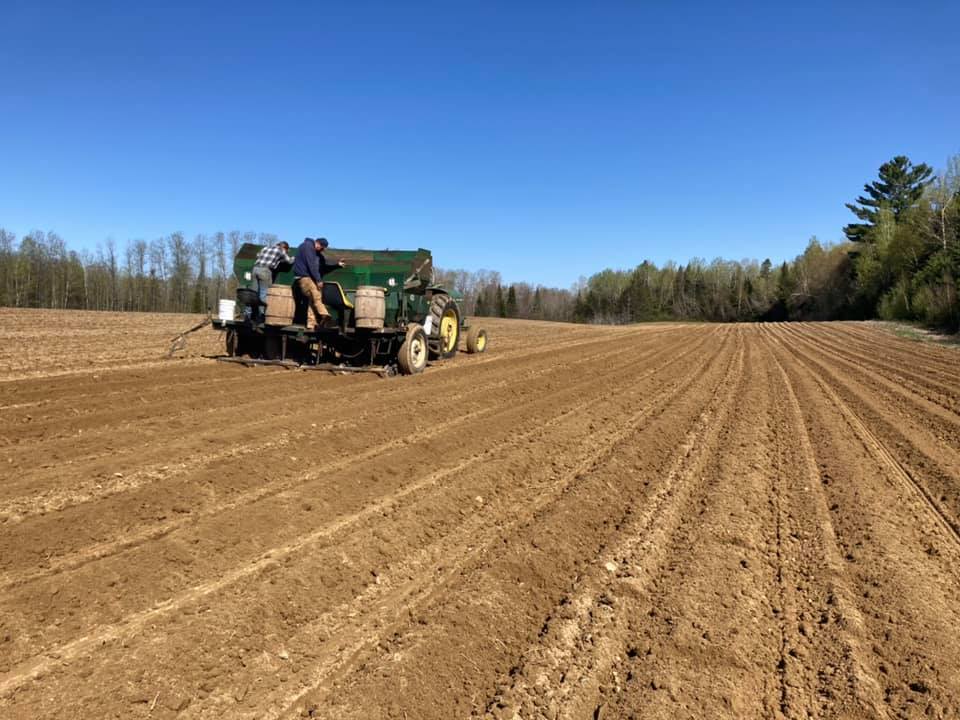
Potato tops need to be removed, shaken as pickers advance across the Northern Maine farm field.
When do you eat? When the tractor pulling potato digger is turned off signally the lunch break. Or sometimes early than noon time because of tractor or digger break down.
There are digger lags hooked together to create the bed with spaces to filter out the potato field dirt.
To lay out the two or more field rows into a flat shaped table of new golden or whatever color spuds to fill a basket to add to the barrel.
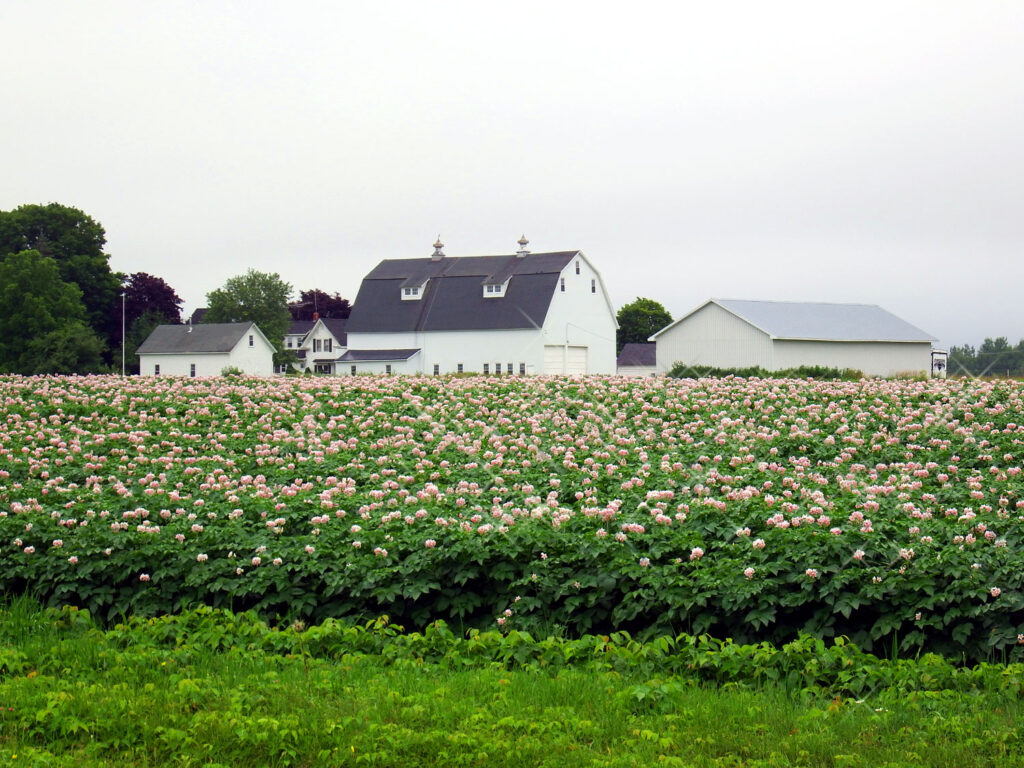
More on picking Maine potatoes explained by someone who grew up on a farm and picked from age five and on like my three older brothers.
You start out picking.
Graduate to the farm truck or maybe a harvester work shift where you stand and pick out the rocks, the rot and debris.
So it won’t end up taking up space in the potato storage bins.
Over the winter months, the same Northern Maine farmer can use the field tested pickers to pack.
Put up potatoes trailer truck loads shipped to southern markets for distribution.
So what is the occasional cry that picking potatoes is child abuse?
It is hard for someone that never picked potatoes or missed out on the fall harvest tradition to grasp the experience.
You never did it, how could you know without spending time out in the Maine potato field?
School students spending the three to four weeks out in the Maine potato field are social, talk and laugh as they pick, move from to a new harvest section of the farm.
The Red Sox are in a pennant race that fall. Someone has a radio next to your section. It’s one for all and all for one to get those spuds out of the ground before a killing frost. Before snow or dodging rain drops that can interfere with the potato picking process. May work later tonight, or Sunday depending on how’s the weather been this fall in Maine.
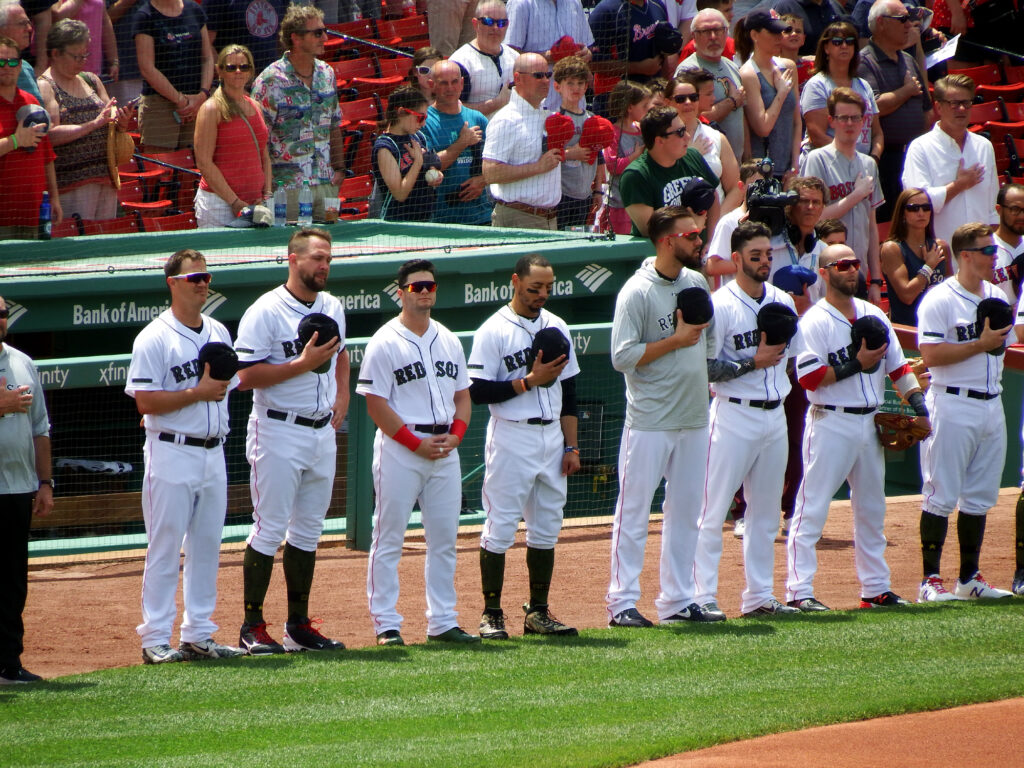
The potato pickers see the outdoor beauty of the early morning fog, the brilliant fall leave color change and fill their lungs with fresh air.
Worked muscles bending over filling potato baskets and lugging them to fill the empty barrels gets students into shape for soccer or other school sports ahead. The field dirt and dust will wash off in the tub or shower tonight when they get home. They tell Mom and Dad about the wildlife they saw out in the field today.
Heading to the small downtown of a Maine community to shop for a new winter jacket is part of the Saturday night learning experience.
Shopping with your own earned money sharpens your spending skills. And if you don’t perceive a value, you keep looking. Impulse spending control is easier to master when it’s your hard earned money. Not twenty dollar bills spit out, handed to you from the mom and dad ATM.
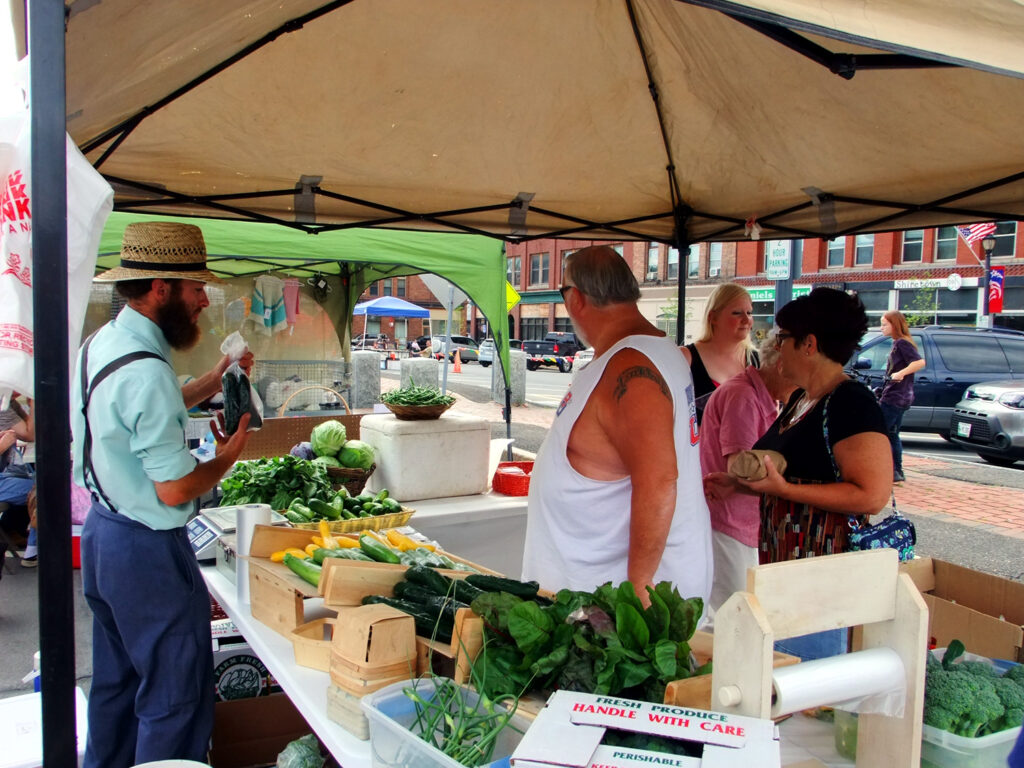
Learning how to save not just spending is money management.
But what if you never had an entry level job? Did not work for a wage and have to do a good job or you are not asked back the next Maine fall potato harvest? What’s that? Life’s not fair? Life is what you make it. Life is entry level jobs and responsibility to accepting without griping or weaseling out of it. That you have to show up and perform to be an asset not liability.
You stick with it because your family needs the money, the help buying your clothes.
You in turn take better care of clothes you purchase with your own money that is real World right?
The farmer depends on your to help his family get the crop out and into storage. Grit, determination and dealing with colder weather and days when maybe you are not handstand happy about heading to the field. But you do go and eventually less bothers you as your realize the value of this exercise.
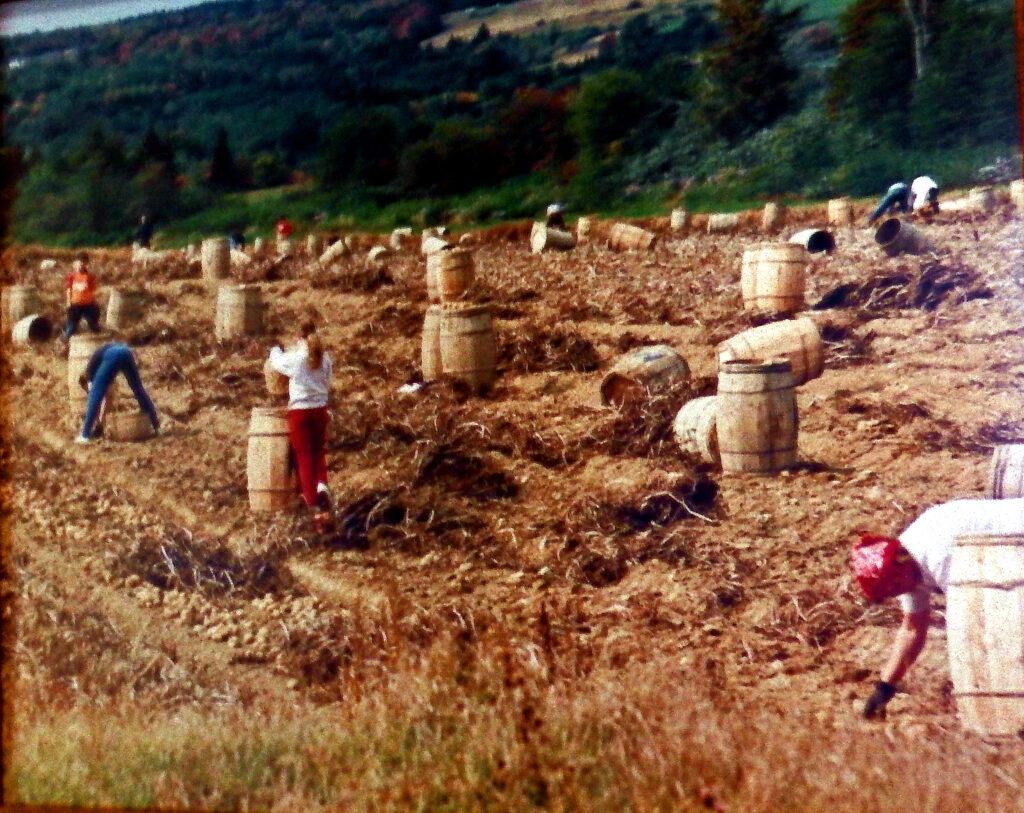
Kids that pick and work the fall Maine potato harvest look around and realize I did something worthwhile during the harvest break.
They feel good about themselves and part of something outside their home four walls and a roof. Independent, responsible and dreaming about what part of their picking check they get to spend as they see fit. What they would like to buy with their own money.
And whatever is purchased does not get broken or discarded after the newness is gone. Instead being respected, cared for and put away to protect it because they earned it. Worked too hard not to take care of whatever they bought with their own hard earned money.
Ask anyone who grew up picking Maine potatoes what they thought about the experience.
Some become farmers from the experience digging in the dirt. Remember “No farmer, no food”. You gotta eat at least three times a day.
The harvest workers are part of a proud, capable bunch and learn their value, developing their work ethic. It makes them proud to be from “The County” and that work ethic, dependability to show up and do a good days work is a rural Maine thing.
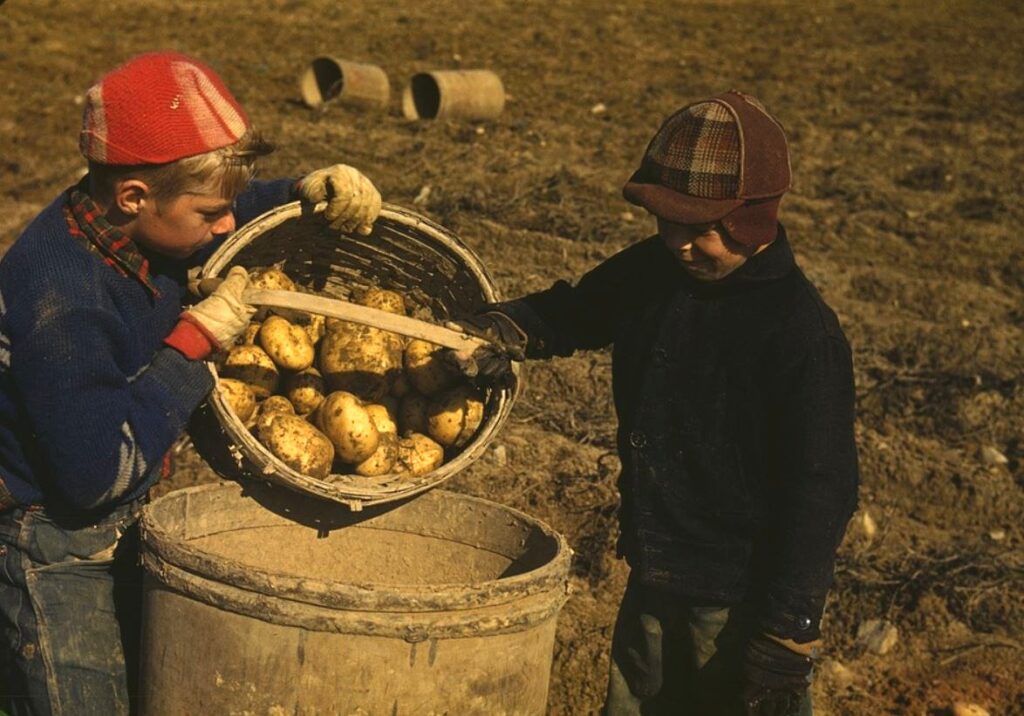
Striving to do your part, to keep your potato field section picked clean and caught up and get along with the others on the potato chain gang.
You start to realize that you are not lazy, that you can stick with something that is not for pure entertainment value. Glad my kids learned from the experience of picking Maine potatoes.
I’m Maine REALTOR Andrew Mooers, ME Broker
207.532.6573 | info@mooersrealty.com |
MOOERS REALTY 69 North ST Houlton ME 04730 USA
